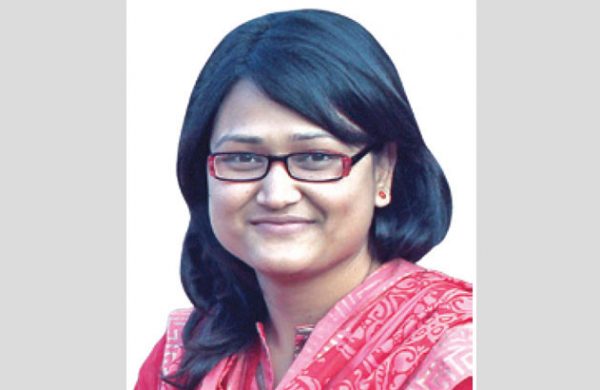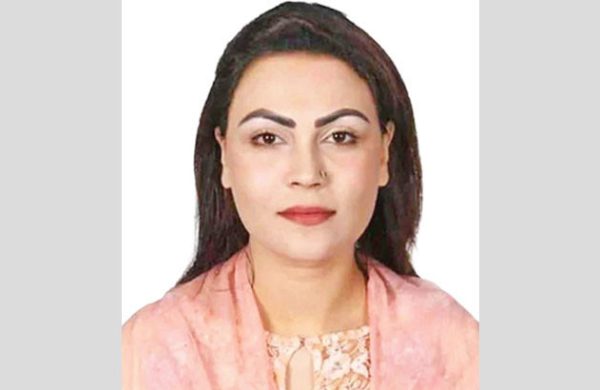Revolutionising Rights through Constitutional Reform
- Update Time : Saturday, October 26, 2024

—Kaniz Kakon—
In a bold move for political change, student leaders at the forefront of ousting the Awami League government have announced plans to propose a new constitution, calling for reforms that prioritise human rights and democracy. The Anti-Discrimination Student Movement (ADSM) is driving this initiative, arguing that the current system is outdated, authoritarian and stacked against the people. Their vision is to overhaul governance in a way that ensures fairness, accountability and the protection of individual freedoms. From a human rights perspective, their demands echo Jack Donnelly’s “relative universality” concept, which highlights that while human rights are globally recognised, they need to be adapted to local political and cultural realities. The students’ objective for this rewriting demand is to ensure citizens are shielded from state abuse and entrenched power structures.
At the heart of their strive is a craving desire to shake up a political system they claim fosters corruption, violence and discrimination. The students are looking to level the playing field by fighting for an inclusive and fair political setup. Through the lens of John Rawls’ theory of justice as fairness, their demands make sense: a just society is one where even the most vulnerable are protected, and opportunities are distributed fairly. Their push to rewrite the constitution taps into Bangladesh’s long history of student activism, where young voices have been instrumental in fighting for justice and human rights. This latest movement is no different, and it’s shining a light on the widespread concerns over civil liberties and political freedom in today’s Bangladesh.
One of the biggest challenges in human rights discussions is the common assumption that simply being human guarantees these rights. While comforting, this belief creates a false sense that human rights are eternal or divinely granted. If that were true, we wouldn’t see ongoing violations. The ADSM is pushing back against this myth. Hannah Arendt’s critique of the “right to have rights” is key here—she argued that rights don’t just exist on their own; they need strong institutions and active citizens to defend them. The students are stepping up to dismantle these lazy assumptions, proving that human rights require active, organised engagement in the political arena. They remind us that rights aren’t fixed—they’re the product of constant struggle, shaped by history and political forces. The ADSM’s bold stance has sparked intense discussion about how student activism shapes national policy. In Bangladesh, student movements have always been a thorn in the side of the powerful, challenging injustice and authoritarian rule. Their call for a new constitution echoes past efforts to dismantle entrenched power and advocate for the marginalised. Critical theorists like Makau Mutua argue that elites often use human rights discourse to maintain the status quo, but the ADSM is flipping this narrative, reclaiming human rights for the people. In a nation where political freedoms are increasingly under threat, these students are standing up as the voice of justice and civil liberties, embodying the power of student activism at its finest.
Of course, the ousted party isn’t standing by quietly. The Awami League and its backers have been quick to label the ADSM’s demands as extreme and accuse the students of trying to stir up chaos. In response, the ADSM has doubled down, calling for legal action against party leaders and urging citizens to sue them for alleged human rights abuses. It’s a classic power struggle, one that brings Michel Foucault’s concept of power and resistance into sharp focus. Foucault argued that power isn’t just something that suppresses people—it also creates opportunities for resistance. The ADSM’s fight against the Awami League and the Bangladesh Chhatra League (BCL), the party’s student wing, is a textbook example of this dynamic. Their resistance isn’t just about bringing down a political party; it’s about challenging an entire system of power relations that has allowed human rights violations to flourish.
As the movement gains steam, the political future of Bangladesh hangs in the balance. The ADSM’s ambitious calls to rewrite the constitution and restructure governance present a critical juncture for the country. If their push for human rights-centred reform succeeds, it could fundamentally change how power is distributed and exercised in Bangladesh. But their success depends on whether they can rally enough public and political support to make these sweeping changes a reality. Regardless of what happens next, the ADSM’s fight has already reinforced the crucial role student politics plays in defending human rights and sparking political transformation. It’s a vivid reminder that human rights aren’t just lofty ideals—they’re woven into the fabric of people’s everyday struggles and evolve with every challenge to injustice.
In the end, the ADSM’s efforts underline the evolving and dynamic nature of human rights. They aren’t some unchangeable truths handed down from above; they’re shaped by the battles people fight in the real world. Theoretical perspectives from human rights theorists like Donnelly, Rawls, Arendt, Foucault, and Mutua help illuminate what’s at stake in this movement. As the students in Bangladesh take their stand, they’re redefining the boundaries of rights, power, and justice in ways that could leave a lasting mark on the nation’s history.
The writer is an Assistant Professor in the Department of Philosophy at IUBAT and currently on study leave pursuing a Masters in Human Rights and Multiculturalism at University of South Eastern Norway



















